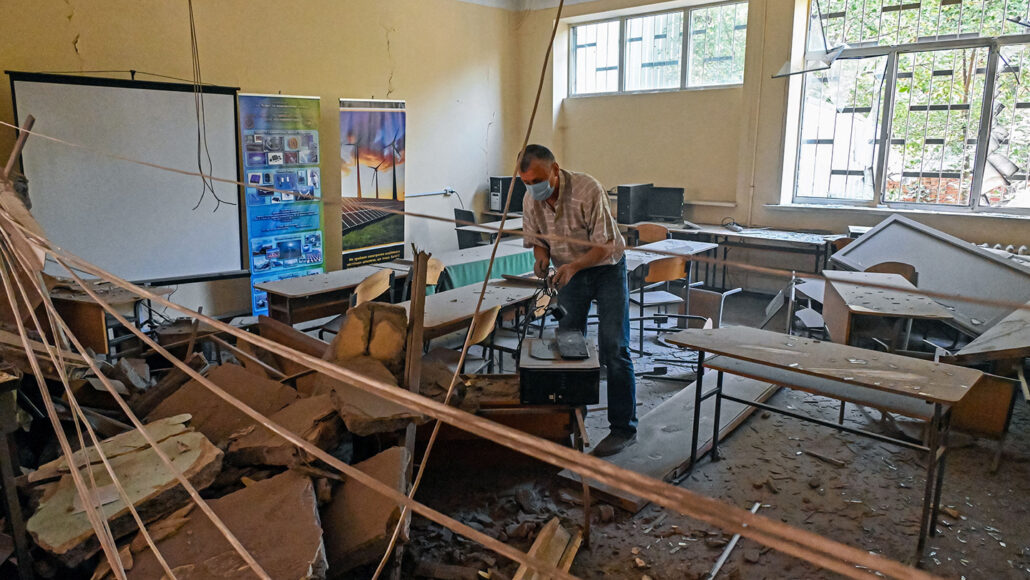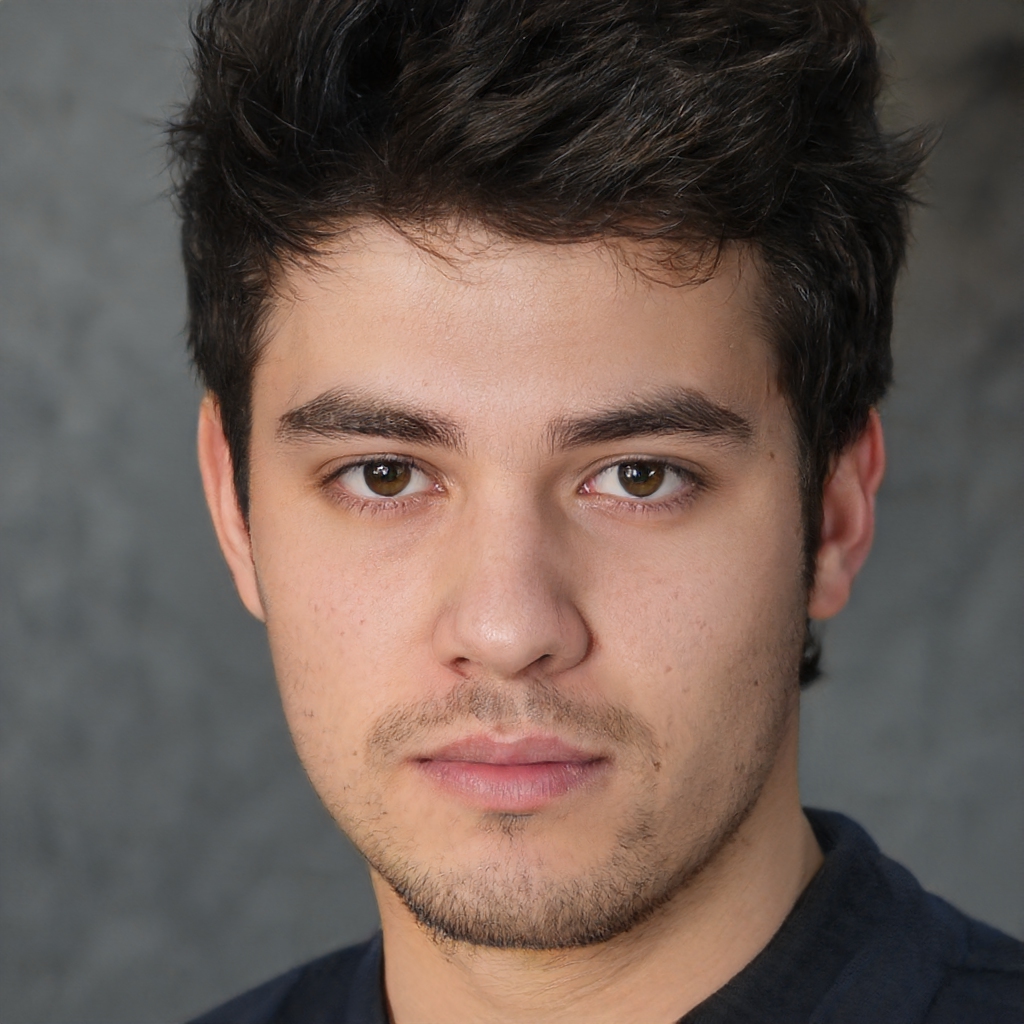Russia's War In Ukraine And Its Lasting Impact On Global Science
The world was shocked by Russia's war in Ukraine at the end of February. Since then, news reports and social media feeds have been saturated with graphic photos of displaced citizens, corpses littering the streets, burning buildings, and mass graves.
Author:Tyreece BauerReviewer:Elisa MuellerDec 19, 202253.8K Shares792.1K Views

According to Science News, the world was shocked by Russia's war in Ukraineat the end of February. Since then, news reports and social media feeds have been saturated with graphic photos of displaced citizens, corpses littering the streets, burning buildings, and mass graves. Numerous lives have been lost, and 14 million people have been uprooted as a result of this conflict.
Warfare never takes place in a vacuum. There have been global repercussions from the conflict in Ukraine, including rising food and energy prices, environmental damage, and the possibility of a nuclear disaster. This is especially true given the simultaneous existence of two other crises, the ongoing coronavirus pandemic and climate change.
Impact Of War On Science
Since the invasion started, Ukraine's infrastructure has taken severe hits. Unfortunately, even educational and scientific organizations have been targeted.
George Gamota, a physicist residing in the United States who advises the National Academy of Sciences of Ukraine, says that although some scientists have fled to other countries, around half are still in Ukraine, and that male researchers between the ages of 18 and 60 are required to serve in the military.
After being born in Ukraine, Gamota's family emigrated to the United States. He has strong links to the land of his birth. Upon gaining its independence from the Soviet Union in 1991, he advised the Ukrainian government on its efforts to establish a modern scientific infrastructure.
“„When Russia attacked Ukraine, all hell broke loose. This situation really has not stabilized.- George Gamota, National Academy of Sciences of Ukraine
He claims that financing for scientific investigation in Ukraine has dropped by half. Help in the form of grants, jobs, and relocation programs have been offered by scientific organizations from across the world. However, Gamota claims that it takes too long for funding to reach scientists' purses, whether it comes from the Ukrainian government or private groups. A few people are being left out.
The Ukraine's National Academy of Sciences is planning for the future. The group had a conference call with its American and European partners in September. According to Gamota, post-Soviet reorganization was discussed in detail by Latvia, Poland, and other countries.
The Ukrainian scientific community received a $1 million donation from the Breakthrough Prize Foundation in March. As Gamota puts it, the organization's "wonderful" contribution of $2 million in October will help tremendously with reconstruction efforts.
Impact On Research In Physics And Space
The scientific community in Russia has been hit both directly and indirectly by Western sanctions. At least one space telescope has been temporarily turned off due to mission delays. However, operations on the International Space Station have not been affected. When the current agreements with Russia and Belarus expire in 2024, CERN lab has said that they will not be renewed. Research facilities in Europe are rethinking their energy use in light of rising energy prices.
An enormous amount of energy (about one-third of Geneva's yearly average) is used by CERN. Furthermore, the conflict has added strain to the already fragile international supply network. ITER, the world’s largest nuclear fusion experiment that’s slated to open in 2025, in France, was supposed to operate in 2025, but development delays have caused major setbacks.
Restrictions On Arctic Exploration
Roughly two-thirds of the frozen earth, or permafrost, on Earth is located in northern Russia. Arctic temperatures are increasing at a rate almost four times the world average. Defrosted soil may release hundreds of billions of tons of carbon dioxide and methane by the end of this century. The hunt for potential proxy locations in North America and Europe continues. Climate change research in Russia's Arctic has been hampered by the conflict in Ukraine.
The United States, Canada, Denmark, Iceland, Finland, Sweden, and Norway have all suspended joint projects with Russia. Russia had intended to start monitoring biodiversity and pollution, but these plans have been disrupted by the current freeze. "A cold scientific environment only increases uncertainty and risks of an ineffective response to the warming Arctic.," Korchunov said.
However, there has been continuous collaboration in the Arctic for the time being. Using information gathered in Russia, geophysicist Vladimir Romanovsky of the University of Alaska Fairbanks examines permafrost temperature. Romanovsky believes it's uncertain if his Russian colleagues will be able to take measurements in 2023, despite the fact that his team received data this year. As of right now, we have no idea what the state of affairs will be by then since things are moving so rapidly.
“„It is changing so quick, so fast that we don’t know what the situation will be by then.- Vladimir Romanovsky, University of Alaska
Final Words
In order to solve global issues, scientists are often consulted. However, this seismic change in international politics has disrupted international scientific cooperation, leaving many scientists scurrying to regain their footing. Like the war's end, the effects of this shift on scientists and their work are murky at best.
Russia's researchers, in general, have a hard time finding financing. Currently, there is sufficient funding to keep his collaborators engaged but insufficient funding for actual fieldwork. It's a major issue that Russian scientists can't talk to one other or share information. The current situation has resulted in their virtual exclusion from any future international gatherings or joint projects.
Long-term, many young researchers in Russian science may leave the country, as happened in the 1990s when the Soviet Union dissolved.

Tyreece Bauer
Author
A trendsetter in the world of digital nomad living, Tyreece Bauer excels in Travel and Cybersecurity. He holds a Bachelor's degree in Computer Science from MIT (Massachusetts Institute of Technology) and is a certified Cybersecurity professional.
As a Digital Nomad, he combines his passion for exploring new destinations with his expertise in ensuring digital security on the go. Tyreece's background includes extensive experience in travel technology, data privacy, and risk management in the travel industry.
He is known for his innovative approach to securing digital systems and protecting sensitive information for travelers and travel companies alike. Tyreece's expertise in cybersecurity for mobile apps, IoT devices, and remote work environments makes him a trusted advisor in the digital nomad community.
Tyreece enjoys documenting his adventures, sharing insights on staying secure while traveling and contributing to the digital nomad lifestyle community.

Elisa Mueller
Reviewer
Elisa Mueller, a Kansas City native, grew up surrounded by the wonders of books and movies, inspired by her parents' passion for education and film.
She earned bachelor's degrees in English and Journalism from the University of Kansas before moving to New York City, where she spent a decade at Entertainment Weekly, visiting film sets worldwide.
With over 8 years in the entertainment industry, Elisa is a seasoned journalist and media analyst, holding a degree in Journalism from NYU. Her insightful critiques have been featured in prestigious publications, cementing her reputation for accuracy and depth.
Outside of work, she enjoys attending film festivals, painting, writing fiction, and studying numerology.
Latest Articles
Popular Articles